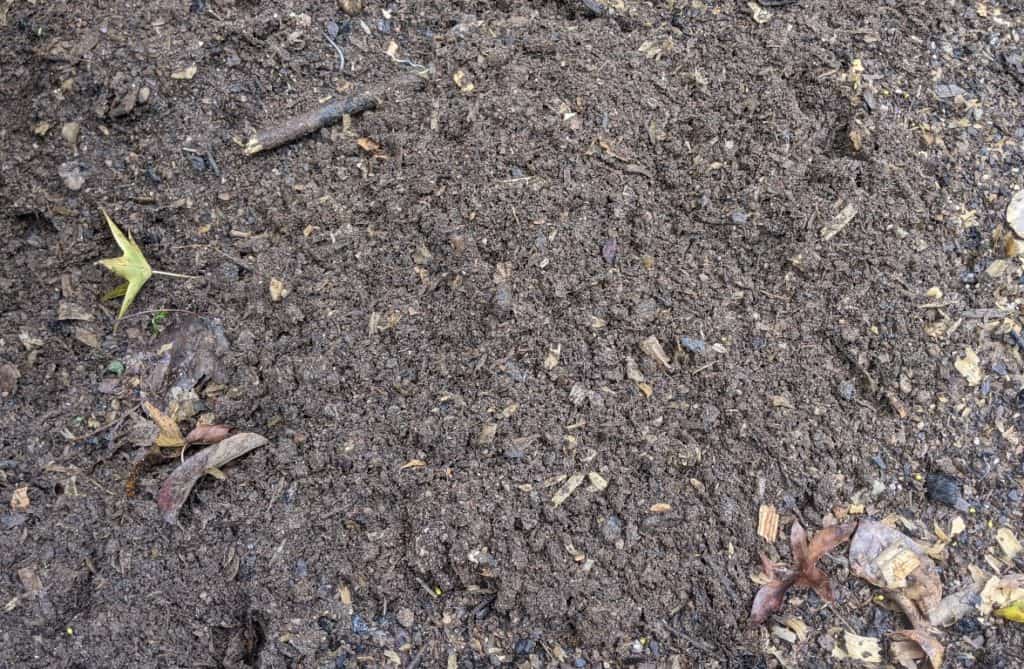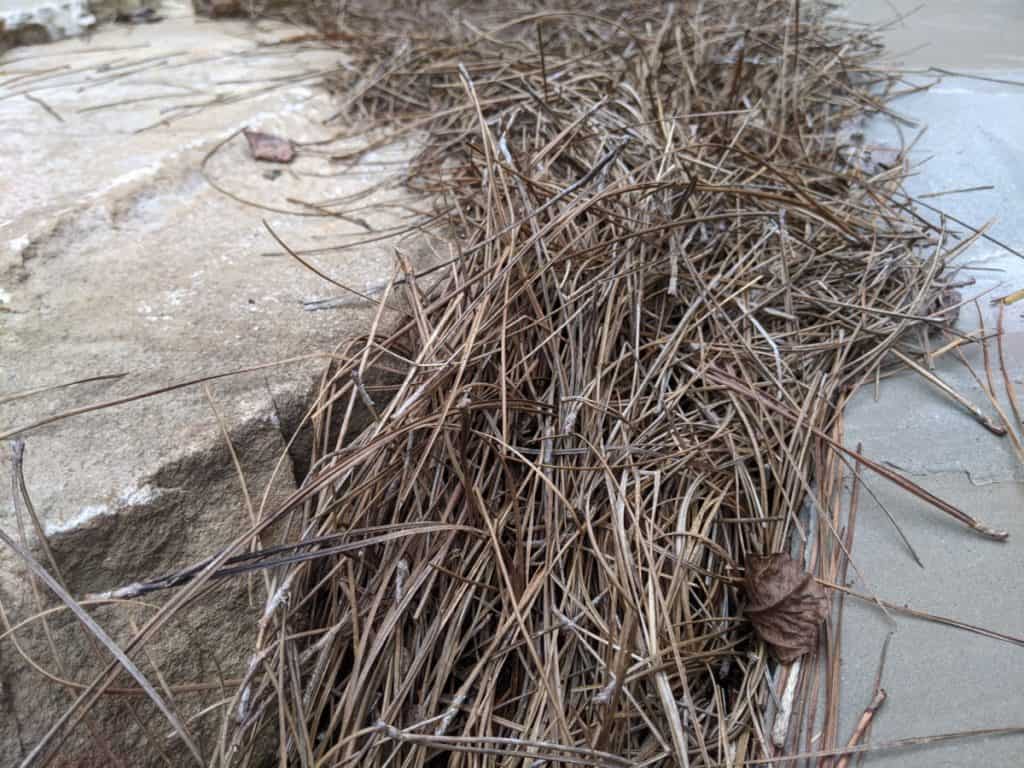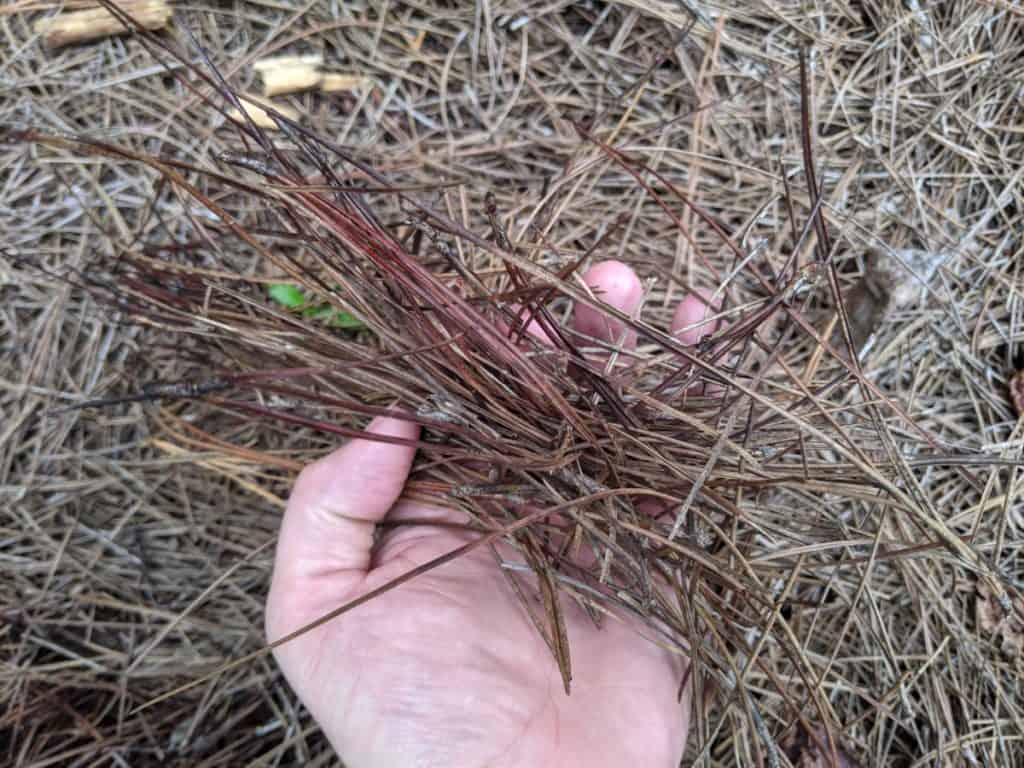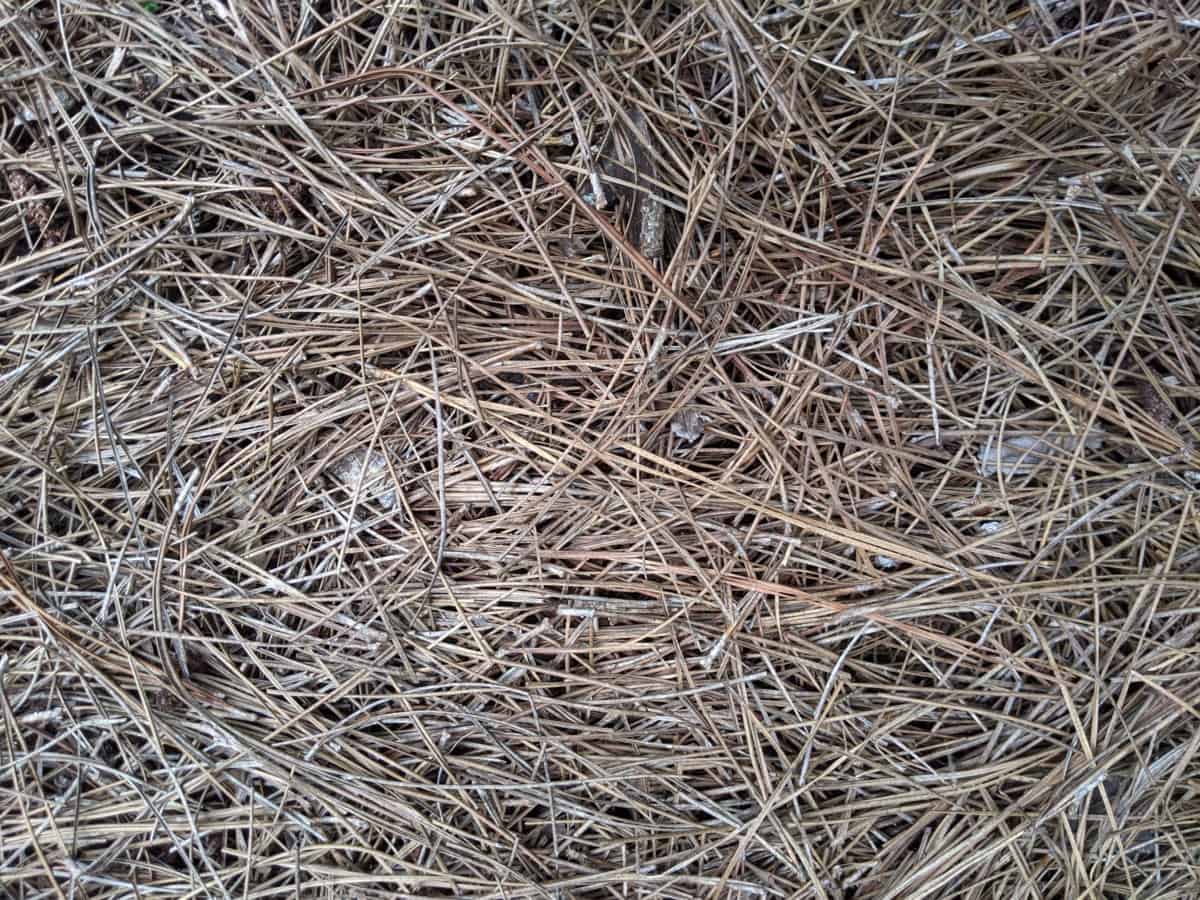Composting is the process of decomposition and recycling organic materials to create a soil-like material called compost that is a great soil amendment for vegetable gardens.
I have a lot of pine trees in my yard and have piles of pine needles. My yard gets covered in pine needles that fall to the ground during the fall time of year.
Can you compost pine needles? In a nutshell, yes, but within certain limits. Compost heaps should not contain more than 5-8% pine needles. The slow decomposition of pine needles calls for them to be shredded and combined with other composting materials for best results.
It’s important to not use too many needles in your compost as they break down slowly compared to other materials you can compost for your garden.
- Are Pine Needles Bad for Compost?
- What are some advantages of using pine needles in compost?
- How long does it take for pine needles to compost?
- How to compost pine needles fast?
- Do pine needles add nitrogen to soil?
- Can you compost fresh pine needles?
- Can you put pine cones in compost?
- Best practices for using pine needles in compost
- Conclusion

Are Pine Needles Bad for Compost?
Some gardeners believe composting nine needles is not worth it due to their long breakdown time, acidity with a PH of 3.2 to 3.8, and lack of nutritional value for plants. However, once they fall to the ground they lose their acidity in about 3 to 4 weeks.
There is a reason many landscapers use pine straw for mulch around plants and shrubs. Pine needles take a long time to break down when they are above ground. Their waxy coating repels water and the needles work as a great weed suppressor.
Pine needles are rich in carbon which is a nutrient essential to composting.
Throughout the compost-making process, nitrogen and carbon need to be balanced. Known as the “Brown” composting straw, dried leaves, and pine needles are carbon-rich materials.
Larger pine needles can be difficult to break down within your compost but there is a solution. In order to increase their surface area, they need to be broken into smaller pieces.
To break up the needles, you can use a lawnmower, shredder, or wood chipper. They also break down faster if you let them soak in water for 24 hours or more.

What are some advantages of using pine needles in compost?
When composted pine needles don’t compact, which is an advantage. This lets airflow through the compost pile and pine needles add bulk to your compost heap.
When used properly, this will help keep moisture levels high in your compost pile.
Because they have a low decomposition rate, pine needles often take longer to decay in a compost pile than other organic matter such as kitchen scraps.
Even if your compost is very hot during the day the breakdown process is slow, so don’t create more than 5-8% percent of your compost heap in pine needles.
How long does it take for pine needles to compost?
Pine needles break down more slowly due to the waxy material on them that helps protect against fungus and bacteria. This waxy coating repels water and further slows the composting process. This is a big reason they are used as mulch by landscapers.
Pine needles can be broken down by hot composting in about 8 weeks. The pine straw remains intact after the greens have broken down within a few weeks. The best temperature range for hot composting is 135° -160° Fahrenheit.
In light of the pine needles’ considerable carbon content, adding even more greens to the pile will keep it hot without making it anaerobic.
How to compost pine needles fast?
By soaking the ground needles in water for 24 hours, you can compost them more easily. Chopping up the pine needles using a wood chipper or other device to make smaller pieces will decrease their surface area.
Since pine needles are difficult to compost, “hot” composting techniques are recommended. It means adding nitrogen-rich materials into the mix such as blood meal, chicken manure, manure, and coffee grounds.
For quicker results, you can use pine needles that have already been used mulched for a couple of seasons. These pine needles have been in the elements for a year and are already starting to break down.
Do pine needles add nitrogen to soil?
Pine needles are not a good source of nitrogen. Pine needles are a good source of carbon or “brown element that can be used for compost. Despite being acidic themselves, pine needles do not significantly influence the soil’s pH level.
Can you compost fresh pine needles?
It is best to let your pine needs lose their acidity before composting them. Aged pine needles break down much faster than fresh needles. If you have a pile of fresh pine needles let them break down for a few weeks before mixing them into your compost pile and make sure to shred them.
Can you put pine cones in compost?
Yes, you can put pine cones in compost but you should use a wood chipper or shredder to break them down into smaller pieces.
This will allow them to break down much faster into organic material that worms and microorganisms can eat.

Best practices for using pine needles in compost
- To compost large branches, use pruners to cut them into small pieces. To quickly and easily compost small pinewood branches and needles, use a wood chipper or shredder.
- As a rule of thumb, only incorporate needles into your compost in small amounts. Your compost pile should contain no more than 5% to 8% pine needles.
- Allow the pine needles to soak for 24 to 48 hours if you can to increase the breakdown process.
- If you have a lot of pine needles, you may want to compost them in a separate bin or large separate long-term compost pile in another part of your yard.
- Avoid putting large amounts of pine needles from the road in your compost. These needles may contain toxins from cars or trash that you can’t see easily.
- If you add pine needles to your compost add an equal amount of green waste to balance out the compost pile.
Conclusion
Pine needle compost has been used successfully by many gardeners over the centuries. The waxy coating also causes slow decay of the needles as it protects them from breaking down quickly.
Because of this, most gardeners first use pine needles as mulch in order to extend their serviceable life and then compost them after a season or two.
Pine needles can be made into good-quality soil conditioners if you add some organic matter. Organic matter that works includes manure, kitchen scraps, or other green material. These types of materials should be added before your pine needles.
You may want to wait until fall when the needles drop off naturally rather than collecting them yourself from trees during springtime.

